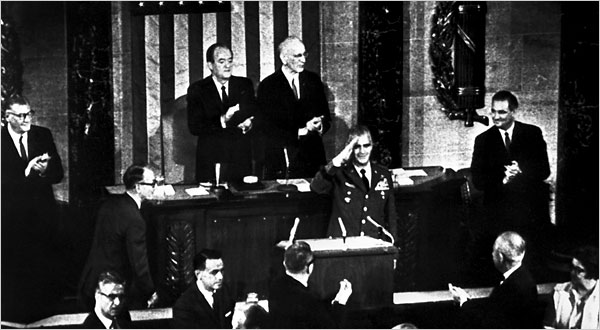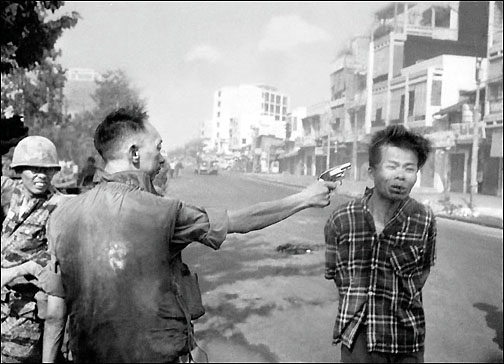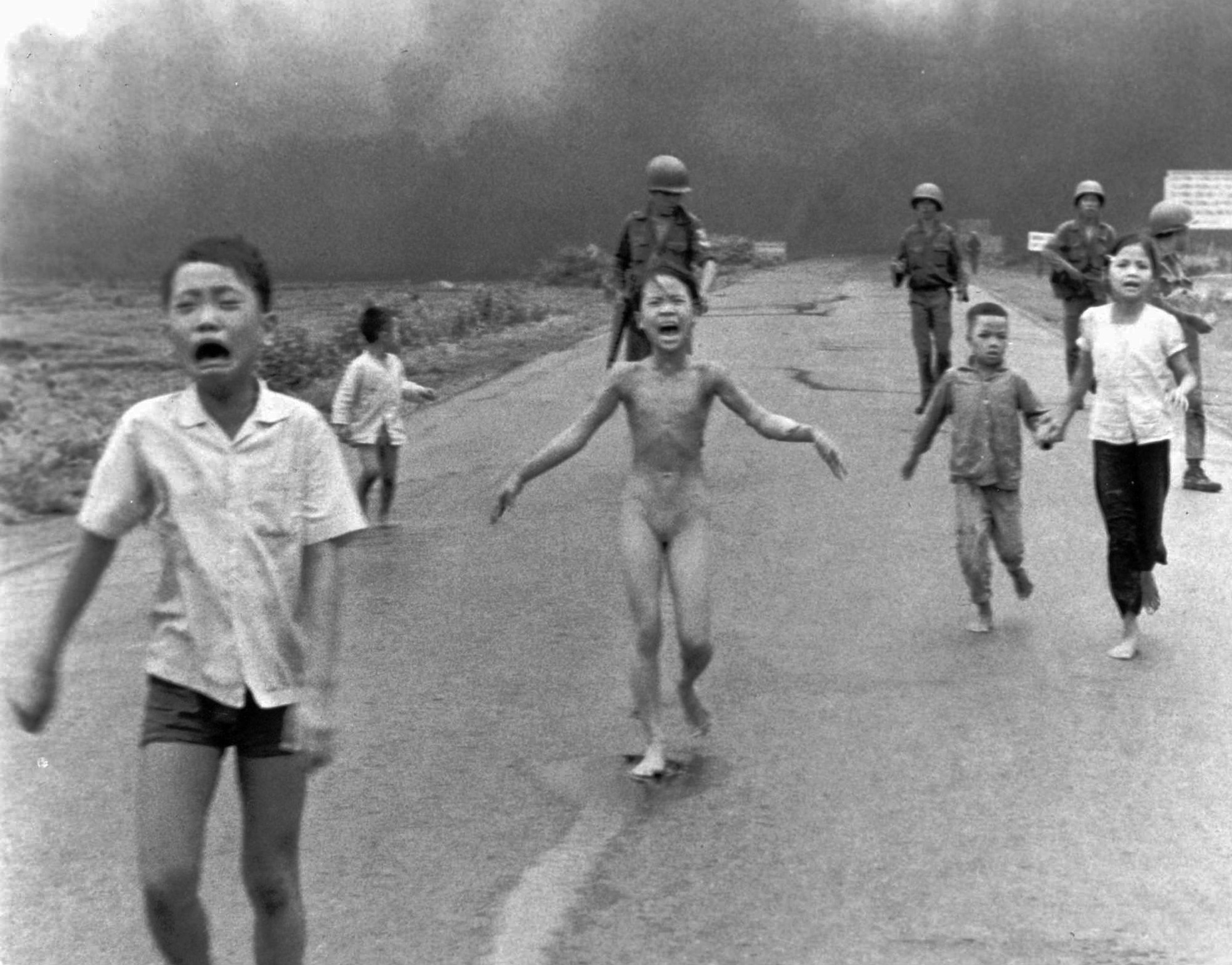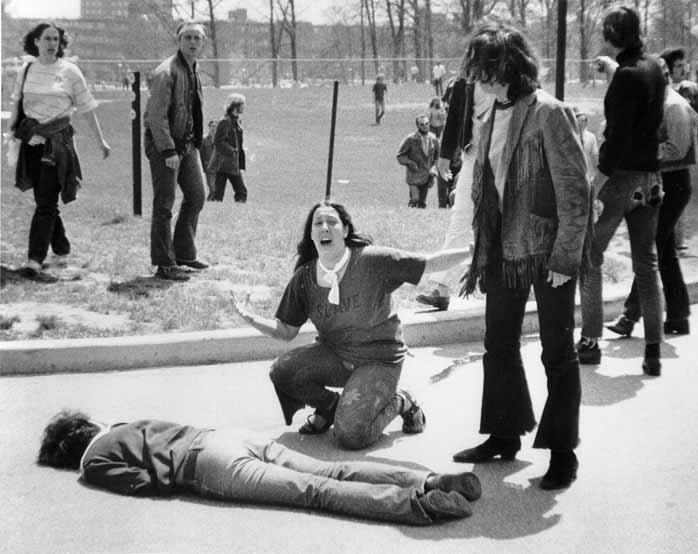As we prepare for General Petraeus’s report on Iraq later this week, we should perhaps recall earlier times when Generals have addressed Congress in the interest of an embattled admistration seeking to prolong a contentious military engagement. Here, of course, we have General Westmoreland who had just travelled from Vietnam to “brief” the U.S. Congress on “military gains in Vietnam” in 1967, six months prior to the “Tet Offensive” :
Of course, for Bush the Elder one of the significant outcomes of the First Persian Gulf War—Desert Storm—was putting “Vietnam syndrome” to rest. It is at least somewhat odd then, if not wholly ironic, that Bush the Younger would seek to revive the specter of Vietnam as a point of comparison to the current war in the Persian Gulf, particularly given how contentious it has become at home. Nevertheless, the current administration has made a concerted effort of late to use our experience in Vietnam as an analogy to support our continued military occupation of Iraq, lest a precipitous withdrawal of troops animate the middle east equivalent of the “killing fields.” It is an odd argument that seems to reverse the terms of George Santayana’s famous “Those who cannot remember the past are condemned to relive it.” Here, by reliving the past, it seems, we put ourselves in position to forget it. Washington Post columnist Eugene Robinson makes the case as well as anyone:
“Bush, Rove, Dick Cheney and the other principal architects of the Iraq war never served in Vietnam … [but] I’m less concerned with their hypocrisy than their distortion of history. To say that the US should not have withdrawn its forces from Vietnam is to say that there was something those forces could have done—something beyond napalm, carpet-bombing, destroying villages in order to save them—that would have led to some kind of victory. Of course, Bush and others don’t say what that special something might have been, because they don’t know. They’re seeing nothing but a historical mirage ….
“George W. Bush wants us to remember Vietnam? Fine, then let’s remember those iconic images – the Viet Cong prisoner being executed in cold blood with a pistol shot to the temple, the little girl running naked and screaming from a napalm attack. Let’s remember how little we really understood about Vietnamese society. Let’s remember how wrong the domino theory proved to be. Let’s remember how much damage prolonging an unpopular war did to our armed forces and our nation, and how long it took us to recover”
For our part, here are the iconic images that Robinson invokes:
And lest we forget the effects of a government that actively strives to limit and demonize public dissent from a policy of war, there is this poignant reminder:
Photo Credits: Agence France-Presse/Getty Images, Eddie Adams/AP Photo, Nick Ut/AP Photo, John Filo/Hulton Archive/Getty Images. The phrase “remembering to forget” comes from the fine book by Barbie Zelizer, Remembering to Forget: Holocaust Memory through the Camera’s Eye.




[…] photograph of the execution of a Viet Cong prisoner in the middle of a street in Saigon before (here, here, and here It is among a small handfull of photographs regularly referred to when one talks or […]